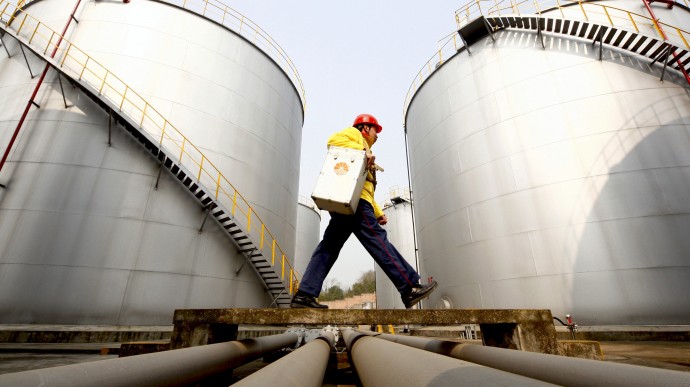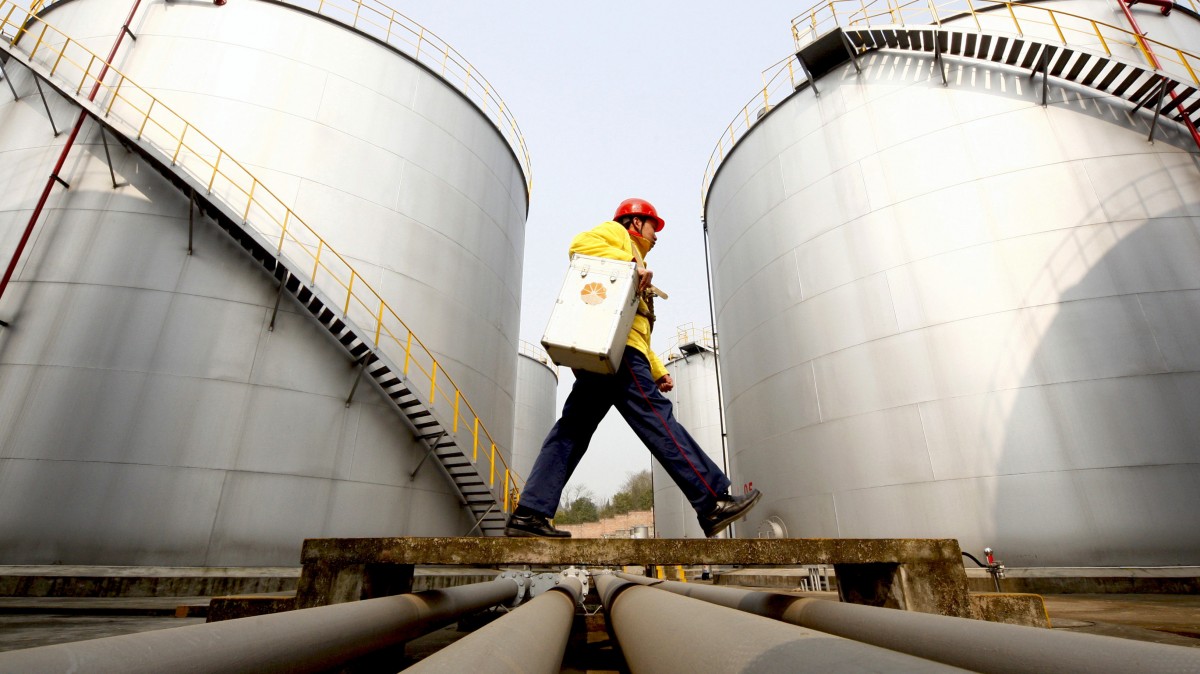
NEW YORK (MintPress) — In the past month, U.S. fuel prices have jumped about $0.30 per gallon to about $3.90, and the Republican contenders for the White House have seized upon the issue to attack President Obama’s energy policies, which have become one of the biggest issues in the 2012 presidential campaign.
Even more troubling, while eighty-nine percent of Republicans said they disapproved, so did 52 percent of Democrats and 73 percent of independents. «People are unhappy that they are having to pay $3.90 a gallon. They want somebody to be able to lash out at, and the president is as good a person as anybody,” said Ipsos public affairs research director Chris Jackson.
The Iran factor
Despite widespread disapproval of the policies, the poll did show voters hold oil companies and foreign countries as accountable as politicians for the price hike.
Indeed, rising tension between Iran and the West over Tehran’s nuclear program, an accident in the North Sea and reported attacks on oil producing areas in South Sudan have all contributed to an upward trend in oil prices. They have added an average 15% since January, climbing to $128/bbl during March.
In addition, a widely expected ban on European insurance cover for Iranian oil exports from July 1 is threatening to reduce shipments to major buyers such as Japan and South Korea.
Last week the European Union (EU) partly exempted some insurers from its embargo on the Iranian oil trade until the start of July, and next month EU ministers plan to review whether to extend those waivers.
On the bright side, though, Iranian Foreign Minister Ali Akbar Salehi said Tehran expects to reopen talks with world powers on April 13 in an attempt to defuse the situation.
A Unified West
There was also some good news on Thursday when French Prime Minister Francois Fillon said it was likely that the United States and Europe would reach an agreement on the release of strategic oil reserves.
Also on Thursday, Reuters reported that Obama had discussed a coordinated release of strategic petroleum reserves in a meeting with British Prime Minister David Cameron, although White House press secretary Jay Carney said only that “energy issues” were among the topics they discussed.
But oil analysts say it is possible that Obama—who released 30 million barrels of oil from the reserves last year in the wake of a price spike following the Arab Spring—could become the first president to tap the reserves twice.
Amidst the flurry of activity, oil prices fell below $123 a barrel on Thursday, while gasoline prices fluctuated. The potential release of crude reserves “represents a bearish impact on the physical market,” said Tim Evans, an energy analyst at Citi Futures Perspective in New York.
Saudi Arabia Reassures
Still, Saudi Arabia, the world’s largest oil producer, is the only country with significant spare capacity to compensate for a major supply shortage. Saudi Oil Minister Ali Al-Naimi last week insisted his country could immediately ramp up production to its full strength — 12.5 million barrels per day (bpd) — from 9.9 million bpd now if buyers requested more oil.
This despite the contents of cables dated from 2007-2009 and released by WikiLeaks last year in which the U.S. consul general in Riyadh urged Washington to take seriously a warning from a senior Saudi government oil executive that the kingdom’s crude oil reserves may have been overstated by as much as 300bn barrels – nearly 40%.
In a rare op-ed piece in Wednesday’s Financial Times, Naimi said that Saudia Arabia did not want rising fuel costs to undermine the economies of consumer nations. Earlier this year he quoted $100 a barrel as an ideal price for producers and consumers.
«I hope by speaking out on the issue that our intentions – and capabilities – are clear. We want to see stronger European growth and realize that reasonable crude oil prices are key to this,» he wrote, adding the kingdom had a responsibility to “do what it can to mitigate prices.»
Obama Reacts
President Obama weighed in on Thursday, calling for an end to federal subsidies for the petroleum industry, arguing that members of Congress can “stand with big oil companies, or they can stand with the American people.”
Earlier in the week, Senate Democrats introduced a measure to end $24 billion in tax cuts for the five largest oil companies and authorize new tax credits for alternative energy resources. Democrats hope those steps could eventually drive down the price of gas and pay down the federal deficit.
In 2005, then Senator Obama supported tax breaks for oil companies.
In what seemed to be a direct response to public sentiment, President Obama struck a populist tone. “I’m not worried about the big oil companies. With high oil prices, they’ve got more than enough incentive to produce more,” he said. “I think it’s time they got by without more help from taxpayers who are having a tough enough time paying their bills and filling up their tanks.”
Spoken like a true politician.
The Reuters/Ipsos online survey reveals that sixty-eight percent disapprove and 24 percent approve of how Obama is responding to price increases.


